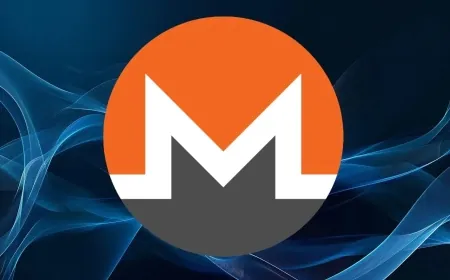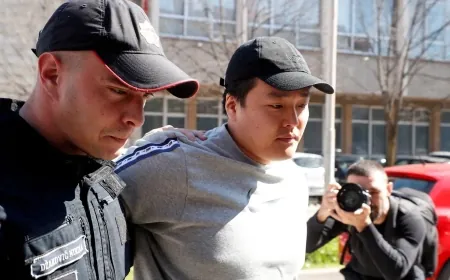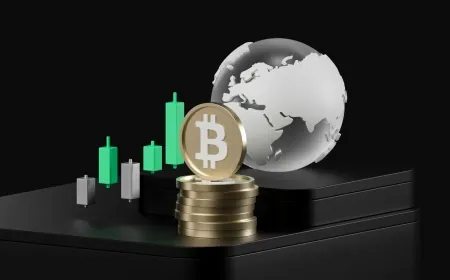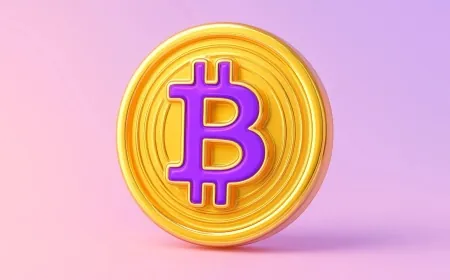Trump Pardons Binance Founder Changpeng Zhao
Trump pardons Binance founder Changpeng Zhao, who served time for compliance failures tied to criminal money transfers through the exchange.
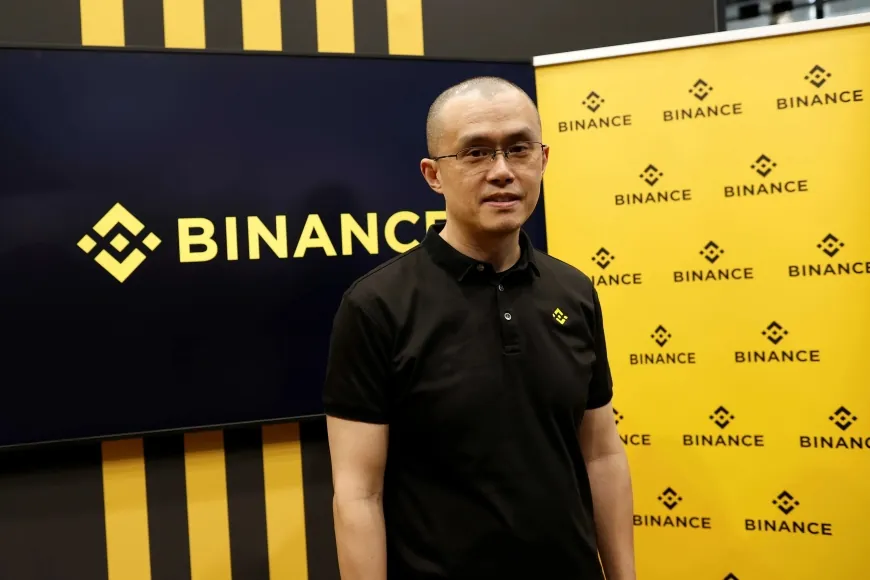
Key Points:
- 1. President Trump granted a full pardon to Binance founder Changpeng Zhao.
- 2. Zhao had served four months in prison for failing to maintain an anti-money-laundering program.
- 3. Binance was implicated in moving funds linked to child exploitation, drug trafficking, and terrorism.
- 4. Zhao has ties to Trump’s World Liberty Financial, which launched the USD1 stablecoin.
- 5. A UAE investment fund plans to use $2 billion in USD1 to acquire a stake in Binance.
- 6. White House says Zhao’s prosecution had no allegations of fraud or identifiable victims.
- 7. Critics warn the pardon could weaken regulatory enforcement and oversight in the crypto sector.
WASHINGTON — President Donald Trump has granted a full pardon to Changpeng Zhao, the founder of Binance, months after the crypto billionaire completed his sentence for violating U.S. anti-money-laundering laws. The decision wipes Zhao’s criminal record clean and allows him to resume business activities previously restricted by his conviction.
Zhao, who built Binance into the world’s largest cryptocurrency exchange, pleaded guilty in late 2023 to failing to implement proper controls that prevented illegal transactions on the platform. Prosecutors said Binance had been used by criminal groups to move funds tied to narcotics, terrorism, and child exploitation.
“I failed here,” Zhao told the court at his sentencing. “I deeply regret my failure, and I am sorry.”
A Request Years in the Making
Zhao had asked Trump for clemency earlier this year, arguing that Binance had since adopted global compliance standards and cooperated with U.S. investigators. The request was quietly reviewed by the Justice Department before being approved this week.
The timing of the pardon drew immediate attention to Zhao’s growing proximity to World Liberty Financial, a digital-asset firm launched in 2024 by Trump and his sons, Eric and Donald Jr. Trump’s financial disclosure reports show he earned over $57 million from the venture last year.
World Liberty Financial introduced a stablecoin called USD1, promoted as being backed one-to-one by the U.S. dollar. The company has attracted foreign investors, including a UAE-based fund that recently announced plans to use $2 billion worth of USD1 to buy a stake in Binance.
Political and Financial Questions
The pardon has reignited debate in Washington about potential conflicts of interest between Trump’s business ventures and presidential decisions. Democratic lawmakers have called for transparency about any discussions involving the White House, Binance, or World Liberty Financial.
Senator Elizabeth Warren said in a statement that Congress should examine whether “personal financial relationships influenced the president’s actions.” Several House committee members are expected to request internal communications related to the pardon.
Legal experts note that while presidents have broad constitutional power to grant pardons, doing so for individuals with recent business links to their private ventures is unusual and politically sensitive.
White House Statement
Press Secretary Karoline Leavitt defended the decision, calling Zhao’s prosecution “politically motivated” and saying that there were “no identifiable victims” of his actions. Leavitt said Zhao had “accepted responsibility and helped set new standards for global crypto compliance.”
The statement also framed the pardon as part of a broader effort to “encourage responsible innovation in digital finance.”
Critics, however, view it as a sign that the Trump administration intends to loosen oversight of the cryptocurrency sector.
Reaction from the Industry
Crypto executives and investors responded with cautious optimism. Some saw the move as a symbolic reset for a sector long frustrated by U.S. enforcement actions. Others warned that the pardon could embolden platforms that have struggled to meet regulatory requirements.
A senior attorney at a major blockchain firm said the message was clear: “If Trump returns to the White House, crypto will be treated as a business opportunity, not a threat.”
Meanwhile, financial watchdogs argue that the pardon risks undermining years of progress toward transparency in digital-asset markets. One former Treasury official described it as “a step backward that could weaken international cooperation on anti-money-laundering enforcement.”
Zhao’s Future and Binance’s Position
Zhao, 48, remains one of the wealthiest figures in the cryptocurrency world. Although he stepped down as Binance’s chief executive following his conviction, he retains significant ownership in the company and influence within its global operations.
Whether he will return to an active leadership role remains unclear. In a brief statement after the pardon, Zhao said he was “grateful for the opportunity to contribute again” and planned to “focus on responsible innovation in finance.”
Binance continues to dominate crypto trading worldwide but remains under scrutiny from regulators in Europe, Asia, and the United States.
Crypto’s Political Role in Trump’s Circle
Trump’s pardon of Changpeng Zhao ties directly to his growing financial ventures in digital currency. His company, World Liberty Financial, depends on the same investor networks that helped Binance expand globally. The move suggests a closer alignment between Trump’s business interests and parts of the crypto industry that have pushed back against U.S. financial oversight.
Several figures connected to World Liberty Financial and Binance have publicly supported Trump’s return to the White House, describing his administration as more open to digital markets. The pardon is likely to deepen those ties, especially as the campaign promotes USD1, Trump’s dollar-pegged stablecoin, as a rival to government-backed digital currencies.
Critics inside financial regulatory circles say the decision sends a signal that compliance violations can be overlooked for allies with economic influence. Supporters counter that Zhao’s case showed uneven enforcement by the Biden administration and that Trump’s action restores balance to how crypto businesses are treated.
Also Read: Hong Kong Approves First Spot Solana ETF by ChinaAMC for HKEX Listing

















































